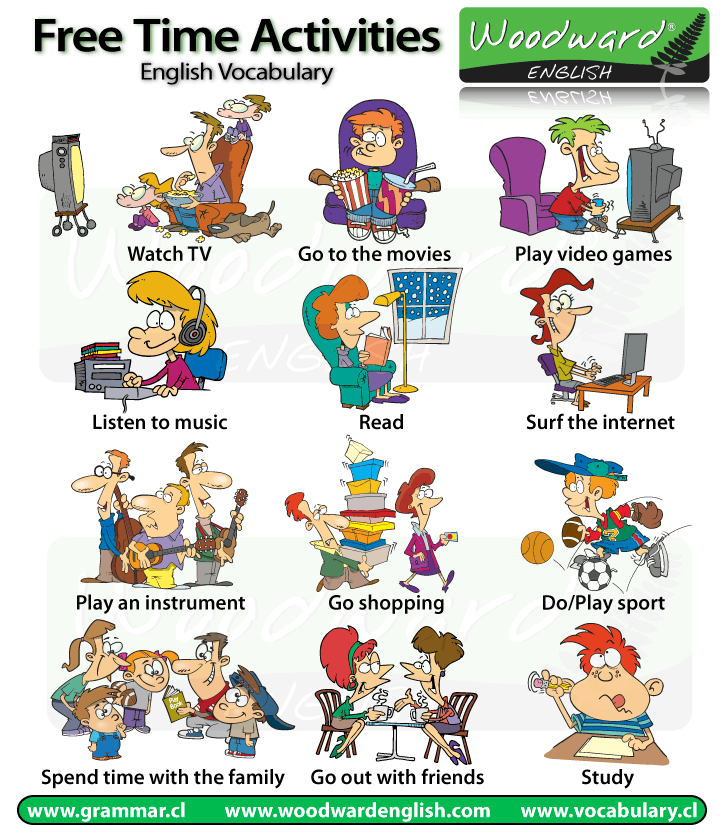 Free time means the same as Leisure time. It’s the time when you are not at work or school and usually have no other obligations to fulfill. You can decide on how to spend that time you have free. Here is a chart of 12 things you can do in your free time: We...
Free time means the same as Leisure time. It’s the time when you are not at work or school and usually have no other obligations to fulfill. You can decide on how to spend that time you have free. Here is a chart of 12 things you can do in your free time: We...
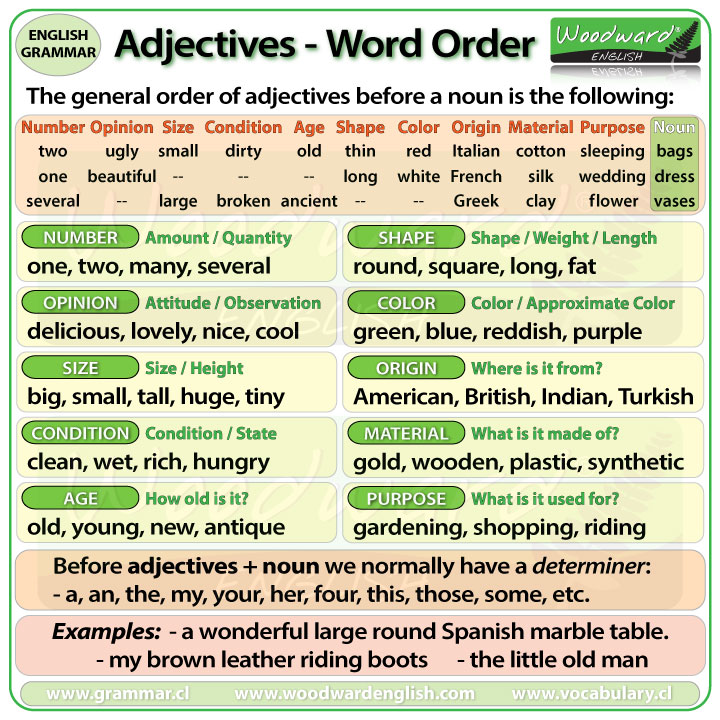 We have created a new grammar lesson about the most common order of Adjectives before a noun. Why do I say the most common order? Because there seems to be no fixed, definitive order for adjectives when they appear before a noun. The information we have compiled on...
We have created a new grammar lesson about the most common order of Adjectives before a noun. Why do I say the most common order? Because there seems to be no fixed, definitive order for adjectives when they appear before a noun. The information we have compiled on...
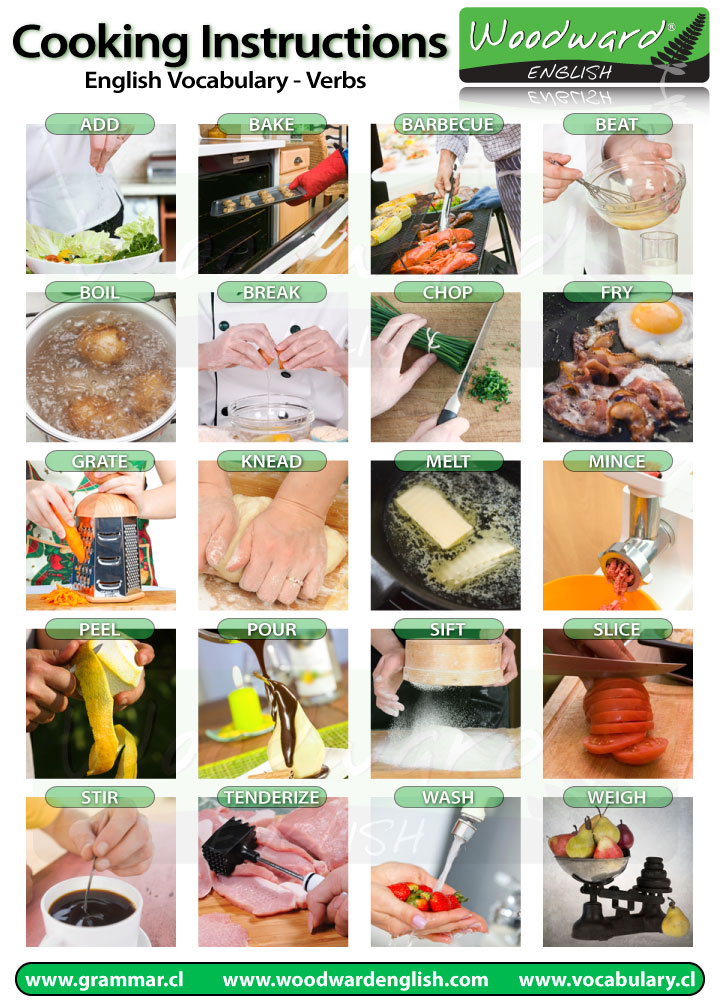 We have a new chart with 20 common verbs that are used when cooking. These verbs often appear in recipes or other cooking instructions in English. For a more detailed explanation of what each verb is, I recommend seeing our vocabulary notes about Cooking Instructions...
We have a new chart with 20 common verbs that are used when cooking. These verbs often appear in recipes or other cooking instructions in English. For a more detailed explanation of what each verb is, I recommend seeing our vocabulary notes about Cooking Instructions...
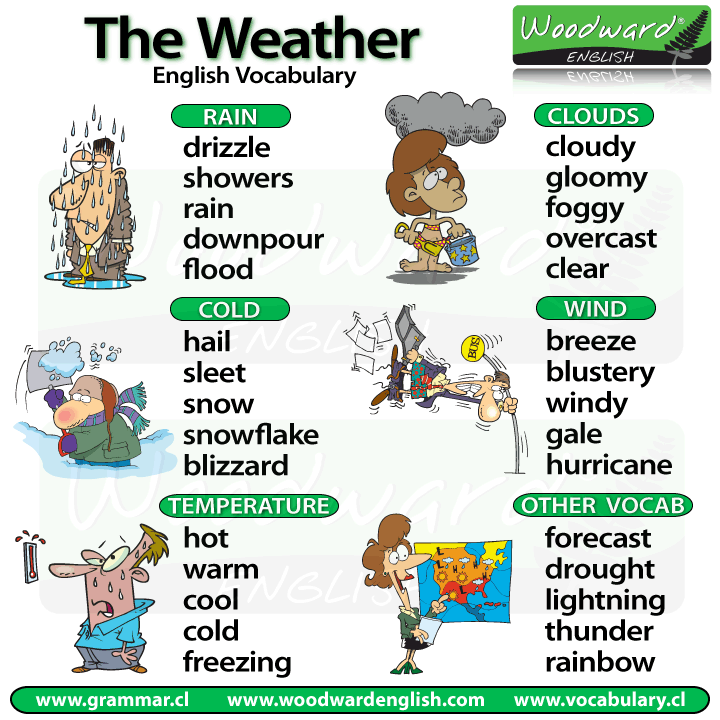 We have created some new pages about the weather, the temperature and also about idioms to do with the weather. Our vocabulary page about the weather in general includes the different types of rain, cloud, wind and other common vocabulary you need to know when talking...
We have created some new pages about the weather, the temperature and also about idioms to do with the weather. Our vocabulary page about the weather in general includes the different types of rain, cloud, wind and other common vocabulary you need to know when talking...
 Cat got your tongue? This is a shortened way of saying: Has the cat got your tongue? This idiom can mean the following: Have you nothing to say? Why are you not talking? Why are you not saying anything? Why don’t you answer me? The idiom is used to compel someone to...
Cat got your tongue? This is a shortened way of saying: Has the cat got your tongue? This idiom can mean the following: Have you nothing to say? Why are you not talking? Why are you not saying anything? Why don’t you answer me? The idiom is used to compel someone to...
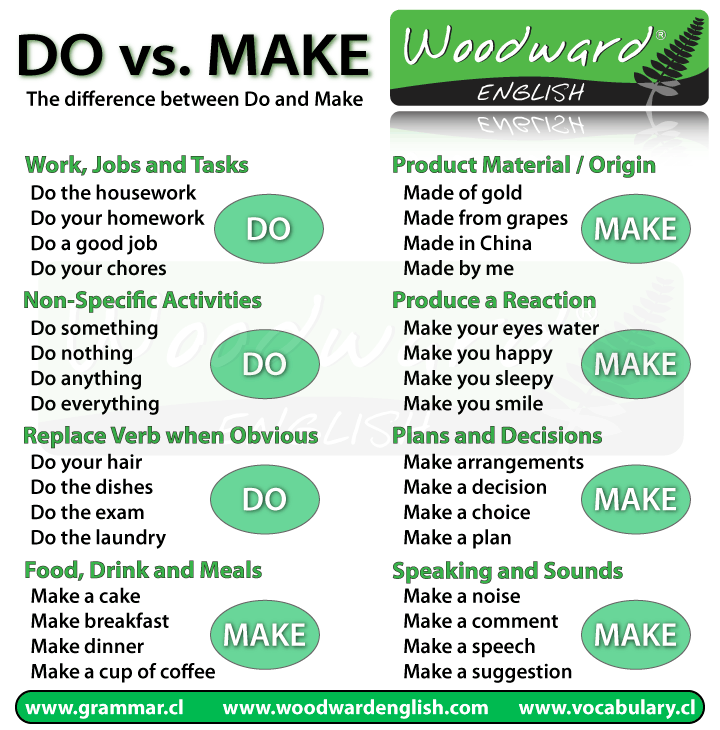 Something that we are frequently asked is when do you use the verb DO and when do you use the verb MAKE. This is understandable because in some languages they use one verb for both Do and Make (like Hacer in Spanish). So to help students understand the difference we...
Something that we are frequently asked is when do you use the verb DO and when do you use the verb MAKE. This is understandable because in some languages they use one verb for both Do and Make (like Hacer in Spanish). So to help students understand the difference we...










